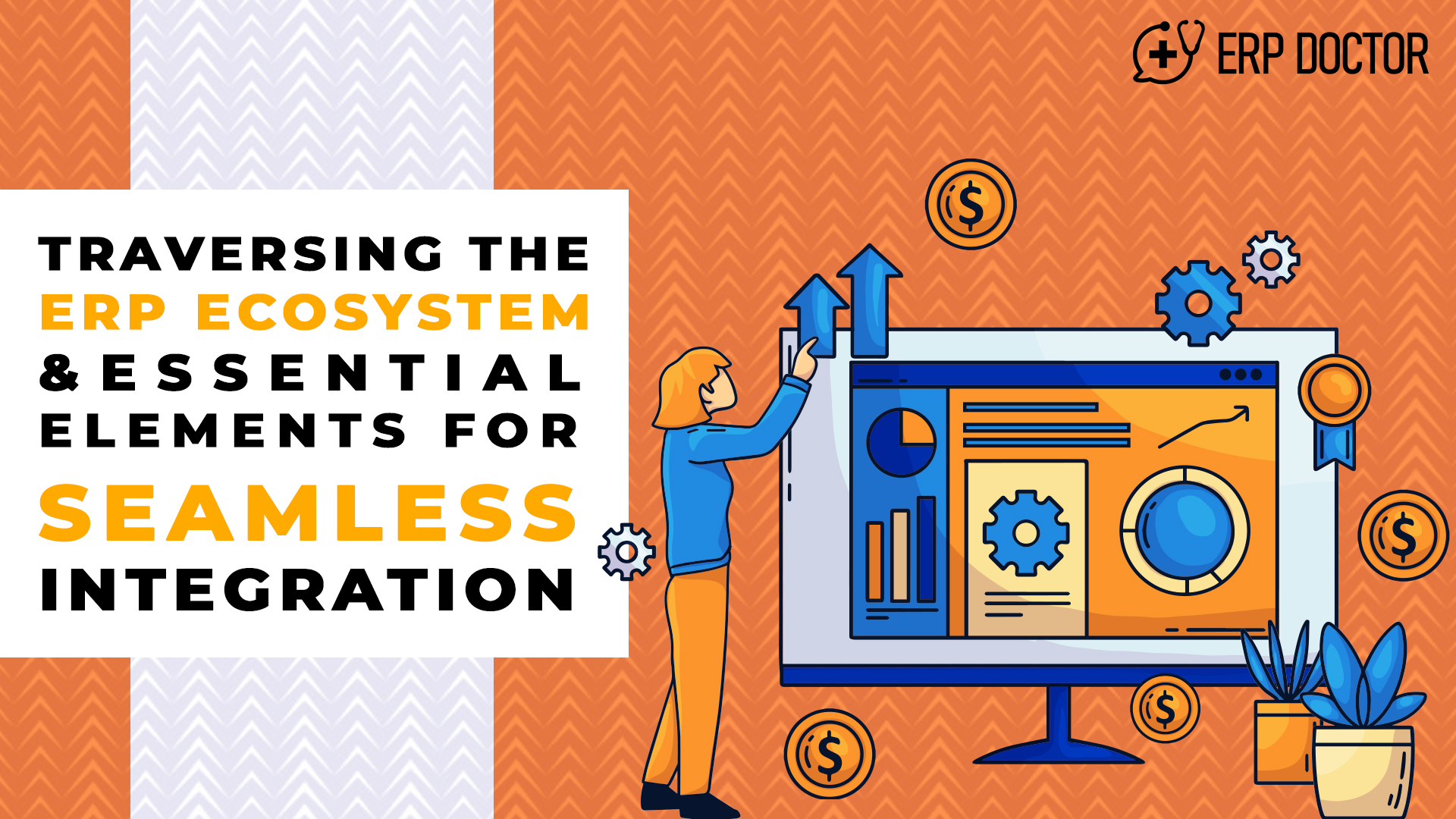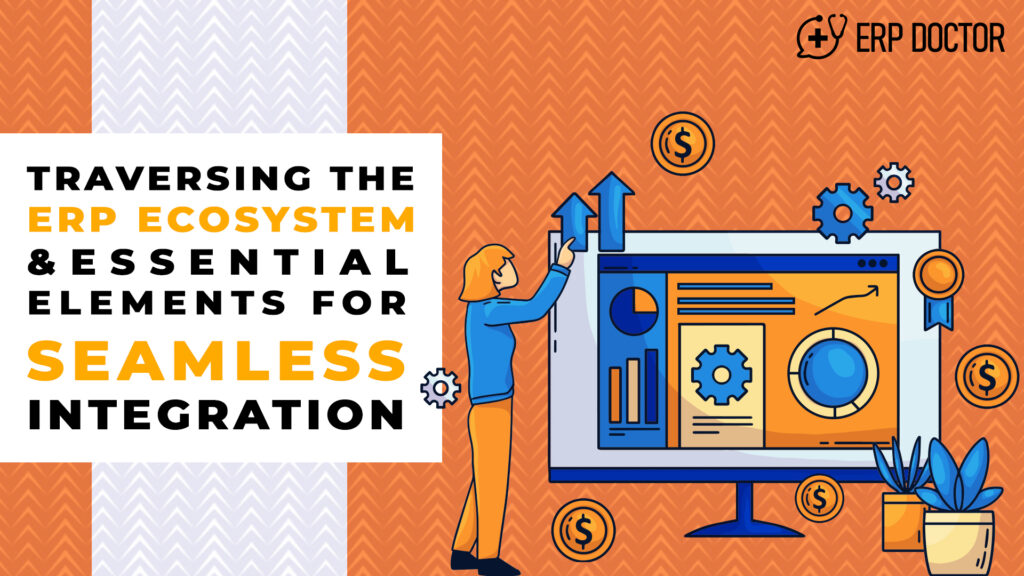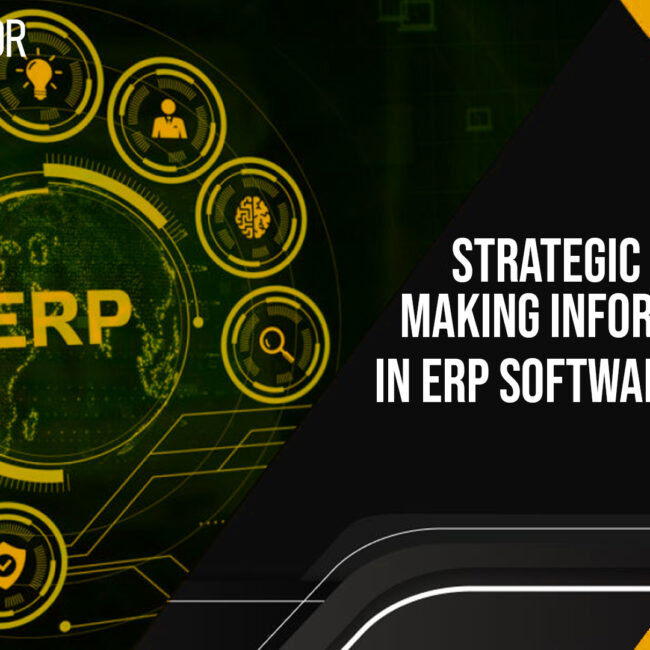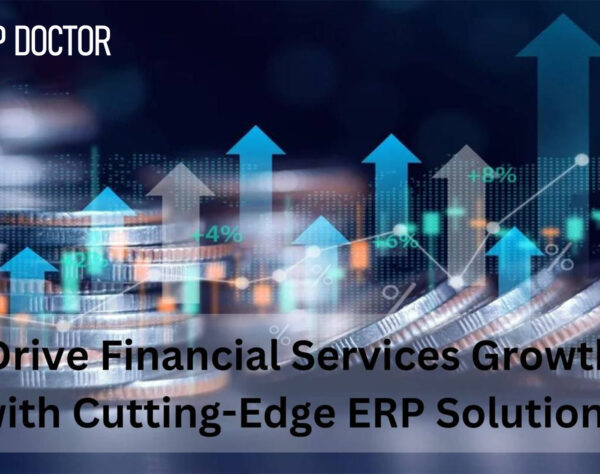
Traversing the ERP Ecosystem and Essential Elements for Seamless Integration

Components of an ERP Ecosystem: A Detailed Exploration
In the dynamic landscape of business operations, staying ahead requires strategic management and streamlined processes. Enter Enterprise Resource Planning (ERP) systems – the backbone of modern organizations. In this post, we’ll unravel the intricate web of the ERP ecosystem, exploring its key components and understanding how they collaborate to drive efficiency and success.
Core Modules: The Foundation of ERP Ecosystem
At the heart of any ERP system are its core modules, which integrate various business functions into a unified platform. These modules typically include Finance, Human Resources, Supply Chain Management, and Customer Relationship Management. Each module plays a crucial role in optimizing processes and facilitating seamless communication across departments.
Database Management with ERP Ecosystem Where Data Comes to Life
ERP systems thrive on data, and effective database management is paramount. A robust database ensures real-time access to information, allowing users to make informed decisions. It also enhances data security and integrity, safeguarding sensitive information from unauthorized access.
User Interface (UI) and User Experience (UX): Bridging the Gap
The success of an ERP system hinges on user adoption, making UI/UX design a critical component. A user-friendly interface simplifies complex processes, reducing the learning curve for employees. A well-designed ERP UI enhances productivity, as users can navigate the system with ease, maximizing the benefits of the software.
Integration Middleware: Connecting the Dots
ERP systems often need to integrate with other software solutions within an organization. Integration middleware acts as a bridge, connecting diverse applications and ensuring seamless data flow. This component is instrumental in breaking down silos, fostering collaboration, and creating a cohesive digital ecosystem.
Customization and Flexibility: Tailoring ERP to Your Needs
Every organization is unique, and ERP systems recognize this diversity. The ability to customize the software to meet specific business requirements is a game-changer. Whether it’s modifying workflows, adding new fields, or integrating third-party applications, customization empowers businesses to adapt their ERP systems to evolving needs.
Business Intelligence (BI) Tools: Transforming Data into Insights
ERP systems generate vast amounts of data, but the real value lies in the insights derived from it. BI tools integrated into the ERP ecosystem analyze data trends, offering valuable insights for strategic decision-making. This component transforms raw data into actionable intelligence, empowering organizations to stay agile in a rapidly changing market.
As businesses navigate the complexities of the modern landscape, ERP systems stand as indispensable tools for achieving operational excellence. By understanding the key components of the ERP ecosystem, organizations can harness the full potential of these systems to drive efficiency, innovation, and sustainable growth. Embrace the power of ERP – where seamless integration and intelligent insights converge to pave the way for a successful future.
Embark on an inspiring journey today – Visit our website and discover a world of knowledge, creativity, and endless possibilities! Don’t miss out on exclusive content and exciting updates. Click here to explore and be part of our thriving community!






